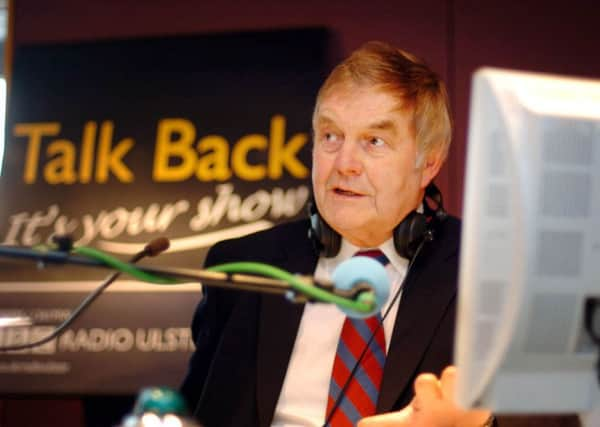Radio Ulster's Talkback at 30: An institution and a mirror to our society


Often in the car – or perhaps in the house where dad had come in from the farm for lunch – the radio was switched on to hear what was happening in the world.
The now defunct jingle and David Dunseith announcing “This is Talkback” marked the start of the middle chapter of every day.
Advertisement
Hide AdAdvertisement
Hide AdIn today’s world of online breaking news, social media and television rolling news channels, it is easy to forget the world of the 1980s and 90s where access to news and debate was scarcer.
In that era, Talkback performed two roles which gave it a central place in homes across Northern Ireland: it broke news which was too late for the morning papers (and wouldn’t be in the then final evening edition of the Belfast Telegraph for another couple of hours) and provided an almost exclusive platform for ordinary people to publicly debate the latest political development or react to the latest atrocity.
In a Province often written off by onlookers as an unsolvable cesspit of sectarian strife, Talkback provided a trusted platform to not only hold politicians and others to account but to give the public a public voice.
In a Guardian obituary of David Dunseith, Chris Ryder described the programme as “an important safety valve”.
Advertisement
Hide AdAdvertisement
Hide AdBecause of the extreme opinions of some of those who it put on air, Talkback was frequently controversial, and I recall my parents tutting at the radio.
But in many ways, it was a more honest reflection of Ulster society – and had more worth – than a programme which simply excluded those whose views and actions were at the heart of our problems.